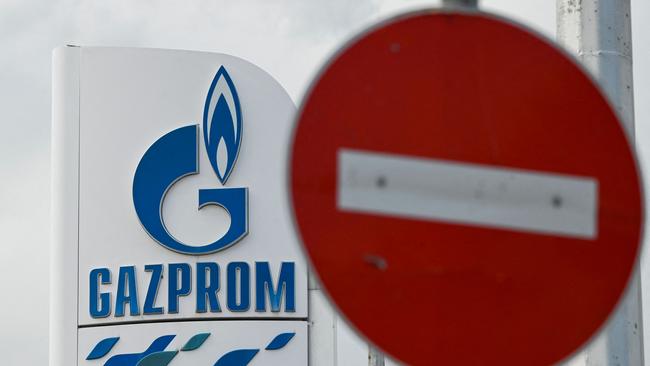Energy crisis fast becoming an economic crisis as Europe faces harsh winter

In Europe the energy crisis, the economic crisis and political fallout are just beginning.
As winter closes in, Russia has weaponised its energy supply and OPEC is not helping.
On September 2, Russia’s state-controlled Gazprom shut off its Nord Stream 1 gas pipeline from Russia to Germany, citing a leak. The Kremlin blamed Western sanctions for preventing maintenance.
By Monday morning in Europe, the prospect of major pipeline supplies being shut off completely by Russia caused gas prices to jump and both the pound and the euro took a dive. The euro hit a 20-year low against the US dollar as investors fear an economic slowdown in Europe.
On Tuesday, September 6, Gazprom released a sinister video titled Winter will be Long.
The two-minute propaganda tape shows gas taps turning off in Russia, pressure dials falling, and an ice age creeping across Europe with aerials of Berlin, Paris and Brussels and London’s Shard freezing over.
The lyrics are to a mournful well known Russian tune: “Look across the river … the winter will be long, only dusk and snow.”
In Europe, nations relying directly on Russian gas supply have been in a race to wean themselves off it as the weather turns. They have run out of time.
Germany, Austria, Denmark and Italy all still rely on Russian gas. Further east, countries like Poland, Slovakia and Hungary are highly dependent.
If it continues to hold out against Russia, Europe must prepare to cut back on demand. And the signs are there that this is now happening.
Cutting off gas at the household level is impractical and potentially dangerous so the pressure falls on industrial businesses.
Major steelmaker ArcelorMittal is cutting production from the end of the month and in Spain Ferroglobe has already shut furnaces. Everywhere businesses are preparing to cut production.
Last week, in an attempt to restrict the money flowing into Russia and its war effort from gas exports to Europe, G7 leaders in the US, UK, France, Germany, Italy, Japan and Canada agreed to cap the price paid for Russian oil as of December. The idea is to ban services like insurance and the financing of shipping that carries Russian oil above that price cap.
Within days, the Saudi-chaired OPEC+ group decided to cut production by 100,000 barrels. OPEC+ consists of the 13 OPEC countries and 10 oil producing nations allied to OPEC, including Russia.
It was a small tweak in the scheme of things, a mere 0.1 per cent of global output, but the move has been taken as a signal that it is unhappy with an oil price below $US100 a barrel and will act to support that level.
How much this has to do with Russia’s anger over the G7 price cap is unclear. But OPEC+ is also worried about a slowdown in China as Covid continues to disrupt that economy.
So far there is no agreement within the 27 member European states on the detail of the G7 plan around the price cap – whether for example it should include gas from outside Russia. And there is no agreement yet on the details of the super profits tax.
We will hear more on Wednesday when European Commission President Ursula von der Leyen delivers her annual state of the union address. But her members are nervous.
Italy goes to the polls on September 25. On Monday The Brussels Times reported that Russia stands accused of interfering in the election after Foreign Affairs Minister Maria Zakharova described Italy’s energy plan, which would reduce dependency on Russian oil imports, as “imposed by Brussels”. And that Italy was being pushed to economic suicide by the sanctions.
Italy’s far right leaders, including former PM Silvio Berlusconi, have been called out as admirers of President Putin, but of greater concern is that Italy’s far right which is intolerant of Brussels could win power. Following Brexit, a more serious fracture of Europe is a constant threat.
Last week was also the week Britain’s Liz Truss became Prime Minister, facing her one giant problem of household power bills averaging around $6000 a year. On Wednesday the famously economically dry leader announced a cap on power prices to be financed by around $250bn in government debt.
The EU response to soaring energy prices is a super profits tax of almost $300bn on energy companies which will fund household bills. Britain has not done this because Truss wants energy companies to invest at speed in new gas supplies in the North Sea.
In these uncharted waters, how capping energy prices, whether households or gas imports, affects inflation will be important.
In Britain, the household power bill cap will lower inflation forecasts (put at a staggering 18 to 20 per cent by some). Rate rises may not be as brutal as expected. But there is that $250bn loan to look after.



The euphoria of Ukrainian troop making inroads into the Russian-held Donbas this week cheered hearts but there is no end to war.